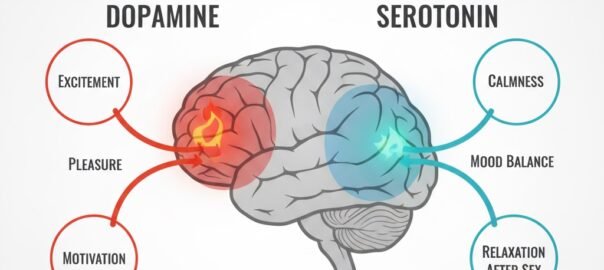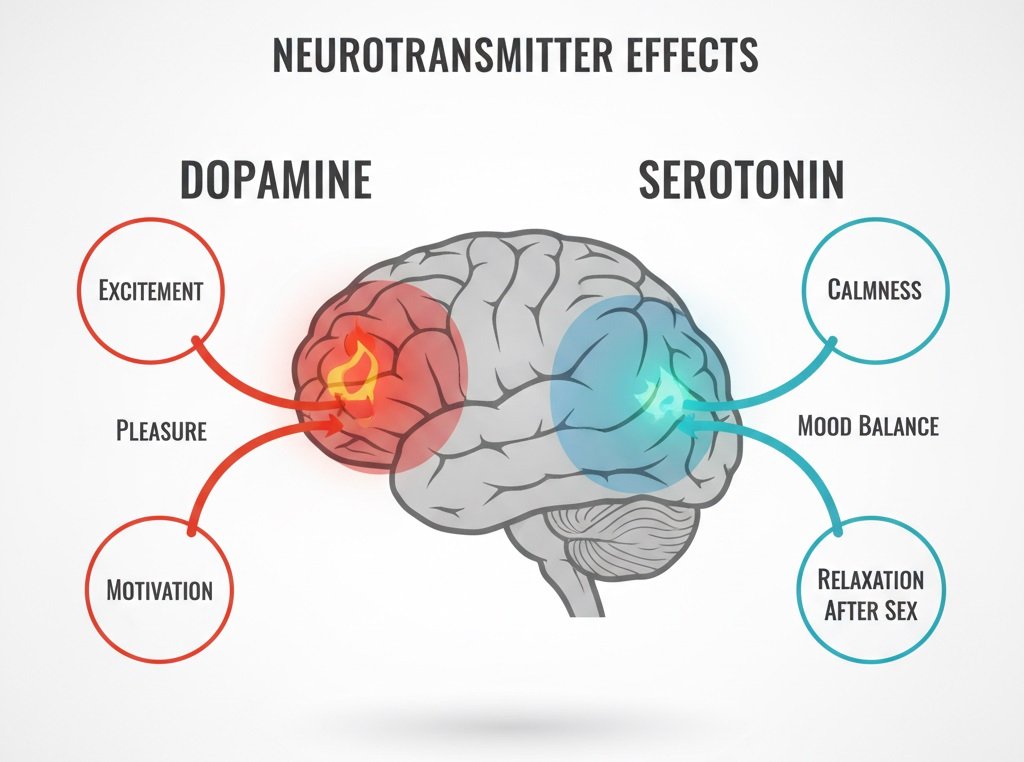Experiencing climax sooner than you or your partner would like can be a deeply frustrating and isolating experience. If you are searching for answers, you aren’t alone—Premature Ejaculation (PE) is the most common sexual complaint among men, affecting nearly 1 in 3 men at some point in their lives.
In a fast-paced city like Delhi, factors like work stress, sedentary lifestyles, and performance anxiety have made PE an increasingly frequent concern for men of all ages.
What Exactly is Premature Ejaculation?
While there is no “set time” for how long sex should last, PE is generally defined by three factors:
-
Climax consistently occurring within one minute of penetration.
-
The inability to delay ejaculation during intercourse.
-
Feelings of distress, frustration, or the tendency to avoid sexual intimacy altogether.
Root Causes: Why is it Happening?
PE is rarely caused by just one factor. It is usually a complex mix of psychological and biological elements.
1. Psychological Triggers
-
Performance Anxiety: The pressure to perform in a new relationship or after a previous “failure” can create a cycle of stress that triggers early climax.
-
Early Sexual Experiences: Habits formed during youth (like rushing to finish to avoid being caught) can sometimes condition the body to react too quickly later in life.
-
The “Delhi Hustle”: High-stress environments, lack of sleep, and professional burnout common in the NCR region significantly impact sexual stamina.
2. Biological Factors
-
Serotonin Levels: Low levels of the chemical serotonin in the brain are often linked to shorter ejaculation times.
-
Hormonal Imbalances: Abnormal levels of testosterone or thyroid-stimulating hormones (TSH) can play a role.
-
Prostate Issues: Inflammation of the prostate (prostatitis) can sometimes cause sudden onset PE.
Treatment Solutions in Delhi: How to Regain Control
The good news is that PE is highly treatable. Dr P K Gupta focuses on a multi-dimensional approach tailored to the individual.
Behavioral Techniques
-
The Squeeze Method: Gently squeezing the head of the penis when you feel close to climax to reduce the urge.
-
The Stop-Start Technique: Pausing stimulation completely for 30 seconds until the sensation passes.
-
Pelvic Floor Exercises: Strengthening the pubococcygeus (PC) muscles through Kegels to improve ejaculatory control.
Medical Interventions
-
Topical Treatments: Anesthetic creams or sprays applied 15 minutes before intimacy to desensitize the area slightly.
-
Oral Medications: Certain medications, including SSRIs, are clinically proven to delay ejaculation under a doctor’s supervision.
-
Lifestyle Adjustments: Addressing underlying issues like smoking, obesity, or lack of exercise which are prevalent in urban Delhi lifestyles.
Professional Counseling
Since the mind and body are so closely linked, speaking with a specialized sexologist can help deconstruct the anxiety surrounding sex, leading to long-term recovery without total dependence on medication.
Why Consult a Sexologist in Delhi?
Many men in Delhi shy away from seeking help due to “Log Kya Kahenge” (What will people say?). However, self-medication or buying “magic pills” from unverified sources can lead to permanent health damage.
A professional consultation provides:
-
Confidentiality: Discuss your concerns in a safe, non-judgmental space.
-
Scientific Diagnosis: Identifying if the cause is hormonal, psychological, or related to another health condition.
-
Personalized Roadmap: A treatment plan that fits your specific body type and lifestyle.
Note: Don’t let a treatable condition affect your confidence or your relationship. Modern medicine offers effective, discreet solutions right here in Delhi.
Frequently Asked Questions (FAQs)
1. How long should “normal” intercourse last?
There is no “perfect” number, but medical studies suggest that for the average man, the time from penetration to ejaculation is typically between 5 to 7 minutes. If you consistently climax in under 1 or 2 minutes and feel distressed by it, it is advisable to consult a sexologist in Delhi.
2. Can Premature Ejaculation be cured permanently?
Yes. In most cases, PE is a treatable condition. Through a combination of behavioral therapy, pelvic floor exercises, and the right medical guidance, most men can learn to delay climax indefinitely. The “cure” often involves retraining the body and balancing brain chemistry.
3. Is it safe to use “Long-Lasting” sprays or creams found online?
While some over-the-counter desensitizing sprays work, many unregulated products can cause skin irritation or even permanent numbness if used incorrectly. It is always better to get a prescription from a certified sexologist in Delhi to ensure the product is safe for both you and your partner.
4. Does stress from work affect my sexual stamina?
Absolutely. Delhi’s high-stress lifestyle is a leading cause of “Secondary Premature Ejaculation.” Stress increases adrenaline and lowers serotonin—the chemical responsible for controlling ejaculation. Managing your mental health is often the first step in improving your sexual health.
5. Can I consult a sexologist in Delhi privately?
Yes. Professional medical ethics ensure 100% patient confidentiality. At our clinic, we understand the sensitivity of sexual health issues in Indian society and provide a discreet, non-judgmental environment for both online and in-person consultations.












